

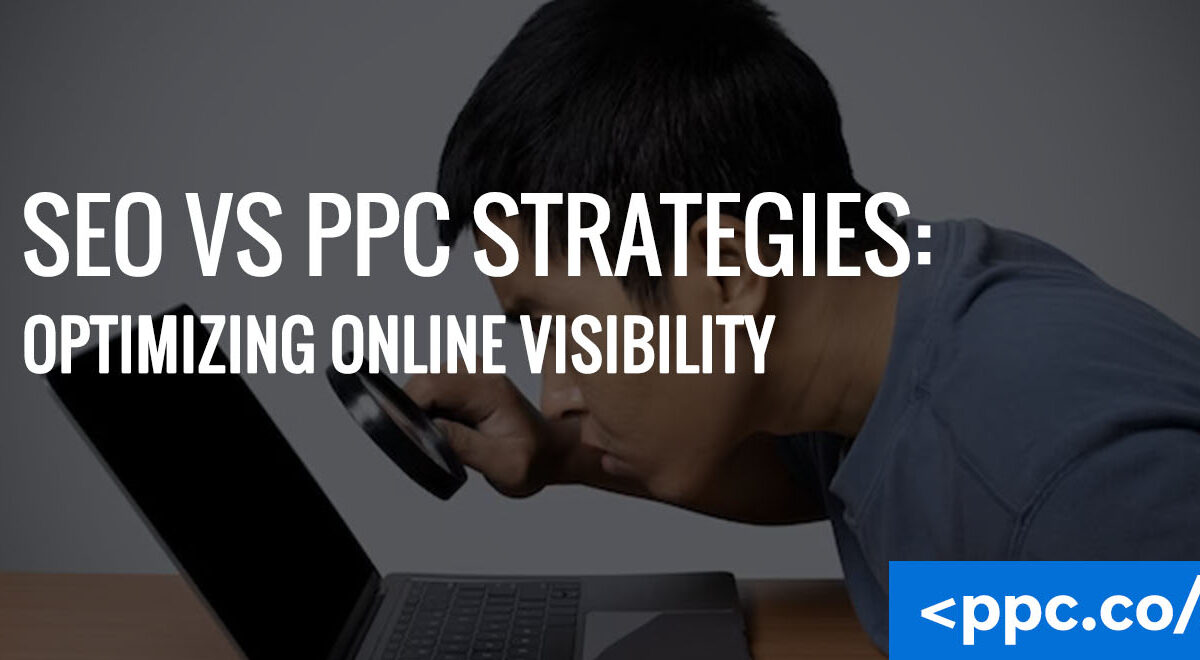
Online visibility is essential for businesses of all sizes, regardless of industry. The success of an organization online relies heavily on effective digital marketing strategies and choosing the right tools to promote their products or services.
Two of the long-established tactics are Search Engine Optimization (SEO) and Pay-Per-Click (PPC) advertising.
With SEO focusing more on organic search results and PPC establishing a presence through ads, organizations need options that cater to both approaches in order to effectively increase their visibility.
This article will compare SEO and PPC strategies as well as explore how integrating the two can further provide greater reach, wider audience engagement, and overall better marketing ROI for any business or entity looking to optimize its online portfolio.
Table of Contents
Toggle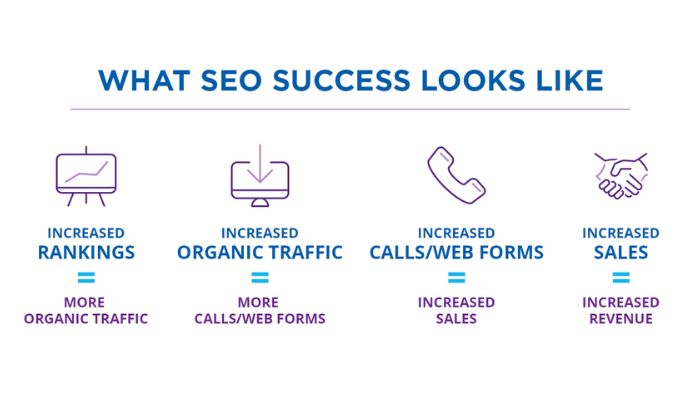
Search Engine Optimization (SEO) is a set of digital marketing strategies designed to generate organic website traffic from search engine result pages. The goal of SEO is to achieve higher search engine rankings for relevant keywords and phrases, resulting in increased visibility and more visitors to the target website.
Effective SEO involves activities such as keyword research, on-page optimization, content creation, off-page optimization technical optimizations, Link Building, etc., all geared towards providing quality solutions and more knowledgeable info particularly related to their customer’s specified interests to existing users and those looking into possible ventures.
But the best SEO is combined with PPC.
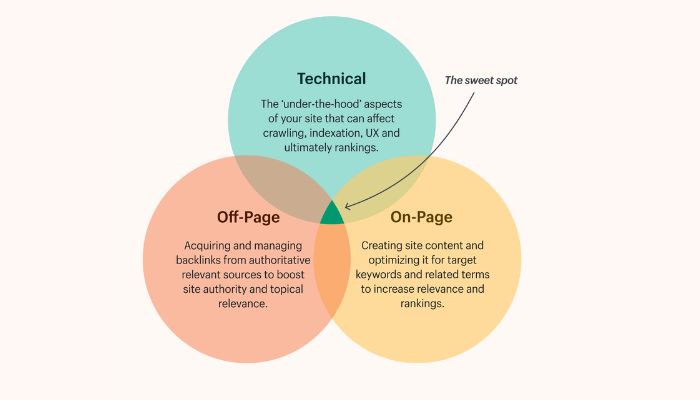
On-page optimization is the practice of optimizing individual web pages to make them more recognizable, engross readers in their content, rank higher in search engine result pages (SERPs), and improve user experience.
It involves updating specific aspects of a web page such as adjusting backend code, amending HTML tags, refining image compression, publishing quality content, and making statements and terms precise and concise with keywords that match users’ queries and other search phrases.
Adopting SEO best practices for on-page optimization can impact both organic search visibility and website visitors significantly without breaking the budget.
Off-page optimization is an essential component of optimizing online visibility, both for search engines and users. This includes activities like content marketing, link building, outreach campaigns, social media strategies, and other forms of external promotion.
It works to establish a strong reputation and increase overall trustworthiness in the eyes of search engines by sharing views, opinions, and content with audiences beyond a website’s own domain.
By connecting people with high-value sites or other resources related to their interests throughout wider networks across the internet off-page optimization helps to build positive associations that lead to better rankings and increased user engagement. Additionally, it can produce greater traffic given its passive but effective nature of sprawling links out beyond one’s site boundaries.
Technical optimization is a fundamental component of an effective SEO strategy and includes practical means of improving the crawlability and indexing capabilities of websites.
Technical SEO measures help search engine bots better access and understand website content. This makes them easier to find for search query results, providing improved visibility in SERP rankings.
Some key areas to focus on include page speed, URL structure, mobile responsiveness, site architecture, structured data markup implementation, etc. To optimize your website from a technical point-of-view requires expertise in coding knowledge & implementations such as HTML & AMP improvement.
Organic traffic generation is an important benefit of leveraging SEO effectively. Organic search engine listings are located along the results page without companies having to pay for placement and as a result offer alluringly low-cost, long-term sustainability.
When businesses optimize carefully selected keywords in their website content and strengthen domains’ authority through backlinks, SEO bolsters visibility despite high-ranking competitors.
Plus, acquired organic traffic provides trustworthiness and credibility that many webs savvy value more than sponsored product placement or paid advertising offerings found in SERP (Search Engine Results Pages).
Search Engine Optimization (SEO) breathes life into businesses by making them visible and relevant in the online space. As a result, search engine rankings go up and more customers are exposed to the products or services provided by the business.
One of the most important benefits of SEO is its long-term sustainability – based on quality content that adds value to visitors searching for answers, businesses are able to not just earn improved search rankings but also establish trust with their target audience.
The biggest benefit of SEO is cost-effectiveness. Unlike full-fledged PPC campaigns, the investment required for a successful SEO strategy is much lower in comparison and operations can produce long-term benefits without recurring costs.
Moreover, search engine crawlers are completely free if your website content is properly optimized to rank high on SERPs organically. Also since your rankings evolve with changes in algorithms accordingly along with great web visibility free of charge makes it more suitable especially for businesses dealing with low budgets or tight deadlines yet expecting higher ROI through marketing efforts.
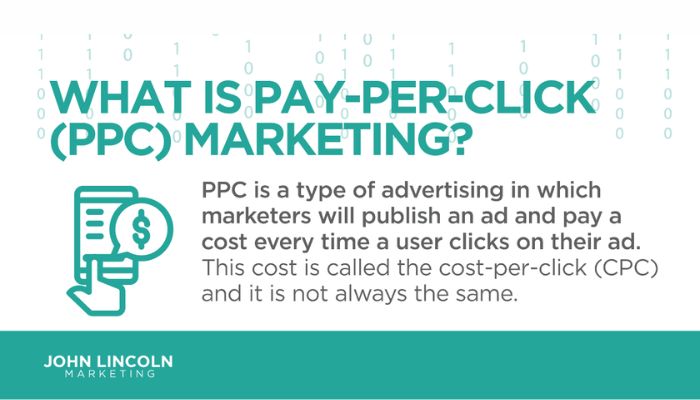
Pay-Per-Click (PPC) advertising is an effective online marketing method used to directly drive traffic and leads to specific websites. It relies on keywords or phrases being purchased by advertisers, allowing them to be seen more prominently in search engine results— creating immediate visibility for businesses.
The main objective of a PPC campaign is to generate revenue while reaching the target audience with a focused backed assessment along with Google ads remarketing tactics. With PPC campaigns, businesses can purchase impressions at setup cost requirement amounts and receive long-term sustainable benefits related.
When it comes to PPC (Pay-Per-Click) advertising, there are many different platforms available. Google Ads is the most popular and widely used platform for companies of all sizes. In addition, paid search tools like Bing Ads and Yahoo Search Marketing are powerful options for those looking to maximize their reach while minimizing costs.
Companies looking for a more targeted approach may consider exploring social media channels like Facebook Ads or Twitter Ads. Each platform offers unique benefits in terms of audience targeting, budget allocation, creative design capabilities, and performance analytics that could help shape an overall online strategy for better visibility and ROI.
Keyword research and selection are critical for running a successful PPC campaign. Through effective keyword research, marketers can identify the exact terms and phrases their target audience is using when searching online. This enables them to craft ads that will appear whenever users search for these specific keywords.
The right keywords should be chosen based on relevance to one’s offering, their intent level (research vs booking), which match types it supports (broad-match, exact, or phrase-match), and competition levels so as maximize ad performance while avoiding expensive bidding wars with competitors.
Once the new advertiser has implemented the newly researched keywords into targeted campaigns they should consistently monitor keyword performance in an effort to add value through optimizing existing campaigns.
Ad creation and optimization are important elements of a successful PPC campaign, as they influence click-through rates.
For an effective campaign, businesses need to select researched keywords that draw attention from relevant audiences. The ads should include captivating copy that grabs potential customers’ attention and convinces them to take action by clicking the ad – compelling headlines, coupled with detailed promotional descriptions can help increase overall conversions.
Additionally, formats such as local search ads call for special tailoring that fixated cites your services or products; all of this needs to be done in the most economical word count possible. Depending on the different platforms available such as Google Ads or Facebook Ad campaigns, technical aspects including structured display settings can powerfully influence user engagement.
When creating and managing a successful PPC campaign, landing page optimization is essential for delivering effective results.
It is necessary to ensure that the ad will actually take users to a destination page optimized to fulfill the desired goals of the campaign. The landing page should contain elements related closely to the keywords they used in their search, reinforcing that relevance all throughout their interaction with your brand.
Creating compelling calls-to-action (CTA) on meaningful pages provides users with the direction regarding what best suits their needs as well as enhances opportunities for conversions or other objectives.
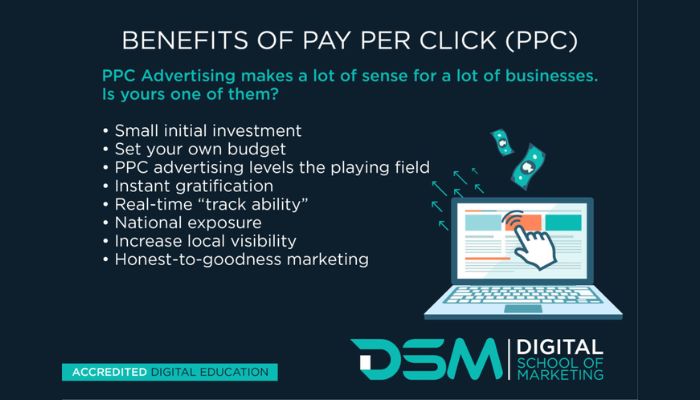
PPC (Pay-Per-Click) is an effective marketing strategy for achieving immediate and targeted visibility online.
Unlike SEO, you don’t have to wait weeks, months, or years before your campaigns start delivering results – they’re usually seen visibly and almost immediately once the campaign launches, making it a great choice, especially for established brands looking to make quick changes in incoming traffic as well as new businesses eager to lure initially customers.
Moreover, PPC advertisers can employ sophisticated targeting capabilities so that ads appear only to those interested individuals hoping to manipulate their budget constraints and overall ROI far more effectively than using traditional methods of advertising efforts such as radio or newspaper campaigns.
PPC advertising gives marketers the ability to capitalize on precise audience segmentation and targeting capabilities. This means that they have complete control over who sees their ads and thus enables them to reach a highly targeted group of individuals through many narrow criteria than possible with SEO or broadcast techniques.
Additionally, PPC affords advertisers better control over where their campaign stands in nearby searches related to their offer compared to other organic results. Because of this increased visibility for individualized offerings, it becomes easier to attract new customers efficiently and quickly by reaching users most interested in the available services or products.
All of this is made possible without any additional costs as known in traditional methods for outward advertisement coverage across well-defined geographies or segmented markets.
The use of Pay-Per-Click (PPC) advertising has opened up many new opportunities for businesses to maximize their resources and reach the maximum number of customers.
As its name implies, PPC campaigns involve businesses bidding on specific keywords in search engines in exchange for displaying advertisements. With every click of these ads, the business is charged a certain amount.
One advantage of employing this marketing strategy is that you can easily measure your Return On Investments (ROI). With careful planning in terms of keyword selection, ad optimizing strategy, budget allocation, and much more one can eventually curate an effective PPC campaign leading to high ROIs without making hefty investments.
Additionally, these campaigns are easily adjustable based on user feedback and target audience preferences allowing you continuously refine it with the help of performance data.
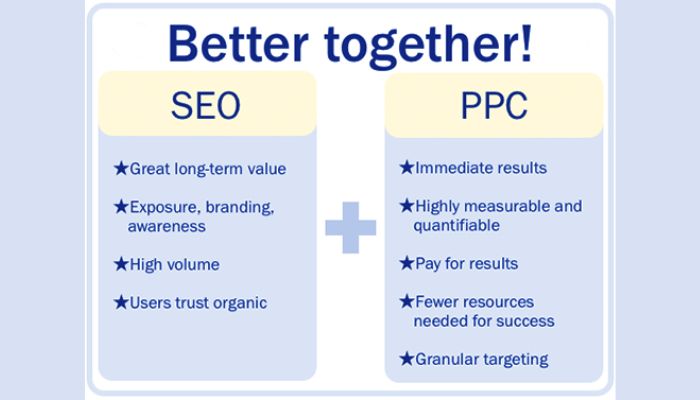
Integrating SEO and PPC improves the visibility of a business’s online presence. By taking advantage of both strategies, it can maximize reach across channels more effectively.
For example, through an enhanced presence in organic search results and expanded visibility through paid sponsored ads that are typically strategically placed on the page. This combination will effectively target potential customers while enhancing brand awareness thus providing tangible ROI for businesses.
In addition, leveraging keyword research insights from SEO & PPC diligently helps identify high-performing keywords to tailor campaigns according to audiences’ needs accurately, allowing adjusted strategy As needed along their journey from awareness to consideration and completion stages with the data available.
Therefore optimizing future growth opportunities by making informed decisions backed up by appropriate data performance analyses in digital marketing plans.
Leveraging keyword insights is a key benefit to integrating SEO and PPC strategies. Identifying which keywords are performing successfully with search engine users can be used to optimize both organic and paid search campaigns.
For example, recommendations from keyword research done on one platform such as Google Ads can also be applied when refining SEO efforts for better rankings on the organic side of SERPs.
Knowing what words or phrases people are using more often in searches means businesses can create more engaging content, landing pages, and advertising copy that helps them reach more qualified audiences quickly.
Additionally, marketers can use keyword trends to respond accordingly so their messages stay relevant in competitive industries where keywords constantly shift and evolve over time.
Integrating SEO and PPC can help generate key data and insights which, when used effectively, can improve the overall online visibility of a business.
Data-driven decision-making allows businesses to leverage all available SEO and PPC analytics to identify high-performing keywords, refine targeting strategies, maximize reach through both organic and paid digital presences, adjust campaign budgets towards more effective channels or channels with better ROI potential; as well as optimize other areas of their marketing strategy.
In conclusion, you can see the distinct benefits and specific limitations of either SEO or PPC strategies when utilized independently.
But by combining both strategies into an integrated approach for maximizing online visibility, there are unique opportunities to tap into keyword insights and data-driven decision-making that would maximize ROI for any business.
Multiple case studies have demonstrated increased effectiveness when optimizing across multiple channels in a cohesive strategy, regardless of budget size or sector.
If you understand how SEO and PPC work together, your brand will naturalize itself as one that is more visible and attractive in search results resulting in a powerful competitive advantage.
Please fill the below form to download the PDF
“*” indicates required fields.
Please fill the below form to download the PDF
“*” indicates required fields.
Please fill the below form to download the PDF
“*” indicates required fields.
Please fill the below form to download the PDF
“*” indicates required fields.
Please fill the below form to download the PDF
“*” indicates required fields.
Please fill the below form to download the PDF
“*” indicates required fields.